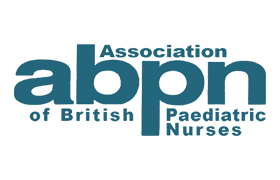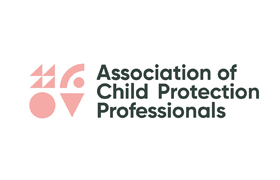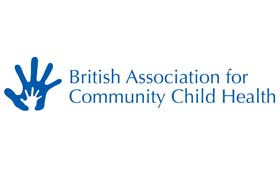This masterclass will review developments in the field of ACEs since it’s introduction by Fellitti in 2000. A focus on understanding the range and life span impact of adversity in childhood has been transformative in the field of mental and physical health. However current developments which demonstrate that the ACEs score – a risk index - although associated with harmful outcomes at a population level, does not predict outcomes for the individual. This has raised questions about the value of the ACEs concept, and its future usefulness in practice, particularly as a screening tool, in child and adult practice. This course will reflect on the current position, and future directions, and make recommendations about prevention, approaches to heal the traumatic responses associated with ACEs, deal with the every -day stress associated, and promote resilience.
The association between Adverse Childhood Experiences – forms of maltreatment and stressors -and life span physical and mental health has captured the imagination of the scientific community. The association has been explored across multiple fields, and the findings will be reviewed in child protection, child mental and physical health, offending behaviour and neurobiological understanding of long -term harmful impacts. The growth of ACEs from the original 10 to over 40 will be discussed, and the role of risk associated with the pandemic, war, conflict and migration, racism, deprivation, community, violence, exploitation and climate change.
Trauma Informed approaches to address the harmful impact of ACEs are popular but poorly supported through research. interventions for maltreatment focus on different forms of harm, and not the traumatic symptoms and associated overlapping internalising and externalising mental health responses, associated with adversity.
A solution is the development of a Modular, Multifocal Approach, which draws together 'Common Elements' from across the field of evidence -based interventions to construct a library of interventions which can be selected to deliver effective interventions for the limitless presentations of children and families living in contexts of adversity and trauma.
Training for practitioners can be provided across all disciplines, and all levels of experience – experienced practitioners in health, social care and education, offending behaviour newly qualified staff, support workers, foster carers, residential carers.
The masterclass includes a printed copy of the HfCF Guide 'Working with children and young people addressing emotional and traumatic responses’
Who should attend
All practitioners, managers, and policy makers across services health, social care, education and youth offending who work with children, young people, parents and their families affected by adversity.
Key Learning Objectives
- A 20-year review of research and practice in the light of the introduction of the ACEs concept in 2000, and the associations between ACEs and life-span impacts across human development.
- To understand the way that considerations of adversity and trauma has transformed practice across child, and adult mental and physical health. Over 40% of Child and Adult mental health is associated with adversity, and the concept of Trauma-Informed Practice has been highly influential.
- To appreciate the strengths and limitations of the ACEs risk index, made up of elements with shorter and long term impacts, predicting outcomes at a population, but not individual level
- To appreciate that adversity – exposure to traumatic experiences – is associated not only with ‘classical’ PTSD (Post- Traumatic Stress Disorder) – also the triggering of a spectrum of overlapping comorbid ‘internalising’ and ‘externalising’ responses, influenced by a variety of genetic and contextual factors
- This requires the development of models of assessment and intervention which go beyond single diagnostic categories, appreciating both risks – ACEs - and Protective factors.
- The future of ACEs, requires a consideration of a broad range of issues. This includes broadening the concept to include Identification, Prevention, Healing trauma and associated mental health response, Dealing with Distress, and Building Resilience.
- Identification of ACEs in practice – includes an understanding of the Social Causes of Disease, the impact of adversity and focusing on identifying conditions which can be helped
- Prevention requires the universal adoption of an approach to stop harsh corporal punishment and adopt sensitive parenting.
- The creation of highly trained cadre child protection specialists tasked with responsibility for decision-making making “decisive and focused” decisions on whether to escalate interventions to protect individual children identified as at risk of harm. (MacAlister Report transforming Social care 2022)
- A Family Help” service needs to be established to provide responsive and intensive support. to families experiencing stress - based in schools and children’s centres and family hubs made up of social workers, mental health practitioners and domestic abuse workers
- Wider government action to tackle rising rates of child poverty, domestic violence and mental illness. Children in deprived areas, where care needs are higher, should get a bigger share of funding.
- The impact of the Pandemic, Racism, Community Violence, Exploitation and Climate Change need to be addressed.
- It is estimated by the Centre for Mental Health that 1.5 million under-18s will need new or extra help with their mental health as a direct result of Covid, The record 420,314 young people being treated every month by NHS services are likely to be part of the total, but even if they all are that still leaves almost 1.1 million more yet to seek help
- Healing Trauma and the associated mental health issues requires a Trauma Informed approach training across relevant services, creating a ‘profile ‘ of strengths and difficulties, and the availability of a library of modular interventions and training of practitioners at all levels to deliver effective trauma informed interventions
- Dealing with Distress requires the introduction of coping skills across schools, colleges and the workplace, to cope with the core response to adversity, and promote resilient functioning.
Facilitators
Arnon Bentovim trained in Psychiatry at the Maudsley Hospital/ Institute of psychiatry, and as a Psychoanalyst, and systemic/ family therapist. He helped to establish the Association and Institute of Family Therapy, and researched measures of family functioning, and clinical approaches at the Institute of Child Health, Great Ormond Street Children’s hospital, and the Tavistock Clinic. He took responsibility for the management of child protection at the Hospital, and he and colleagues established the Child Sexual Abuse Assessment and Treatment Service the first comprehensive service in the UK, and a service to assess the risk and therapeutic needs of maltreated children. Child & Family Training, UK- a not for profit organization- was founded in 2004 to develop and promote multidisciplinary training of evidence -based approaches to assessment, analysis and intervention. Research initially funded by the DofE on common factors in therapeutic work led to the development of UK. The Hope for Children and Family (HfCF) intervention resources. Award –Sept 2014 the International Society for the Prevention of Child Abuse and Neglect recognised Dr Bentovim ‘For his Career Dedicated to the Field of Child Abuse and Neglect and Promotion of Child Rights’. He is Life President of The Lucy Faithfull Foundation.
Carol Jolliffe has worked for Child and Family Training since 2000 and is accredited as a trainer for the range of assessment and intervention tools. She has trained for Child and Family Training in a range of social care and health settings in UK, Ireland, Egypt, Cyprus, Sweden, Germany and Hong Kong. She is currently involved in developing their family work focused training courses. She has worked with children and families in social work and children’s mental health services since 1979. She qualified as a social worker in 1986 and has worked as a practitioner and manager in children’s residential and community settings, including a duty and assessment service and a national therapeutic residential resource. Carol additionally trained as a family therapist (and is also a qualified systemic supervisor) as part of her move to children’s mental health services. She now works as a consultant systemic psychotherapist in an NHS Trust. She has a private clinical practice, offering family therapy and assessments for prospective adopters and foster carers. She teaches on family therapy and clinical psychology training courses for the Tavistock Centre and Canterbury Christchurch University.





